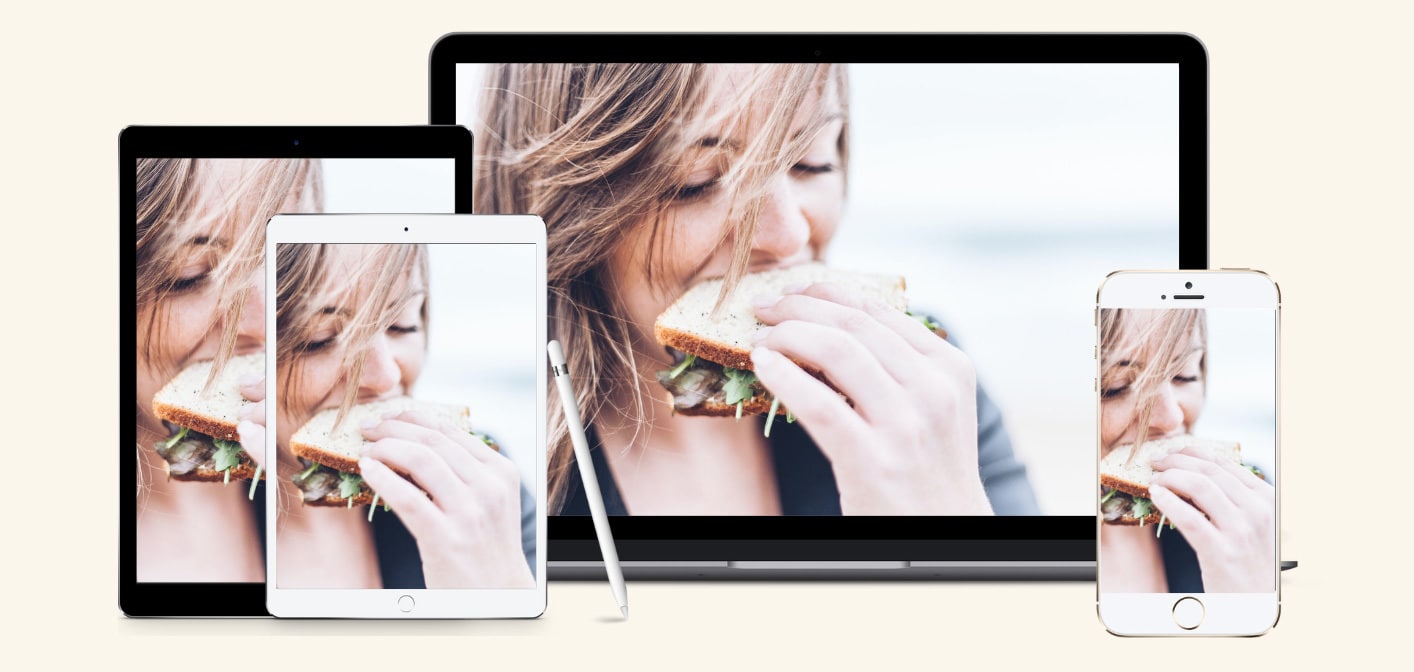The diet mentality is a false belief that society creates, that weight loss creates health, confidence, happiness, and success. This mentality steals joys from life by saying you should delay your dreams until you have lost weight. It’s the voice you hear over and over which categorises food into good and bad or healthy and unhealthy.
So perhaps you’re becoming aware that following rigid rules around eating in pursuit of weight loss is not serving you. Maybe it hasn’t resulted in long term weight loss after all? Maybe it’s ultimately led to binge eating, weight gain, food obsession and regularly eating past the point of comfortable fullness?
This article offers some tips on how to shift the diet mentality.
Where to begin with shifting the diet mentality.
1. Learn about Intuitive Eating
Intuitive Eating is an approach that can help shift the diet mentality. Because ultimately, that pursuit can cause all sorts of complex issues with food and don’t work. Instead, it helps you heal your relationship with food and lets your weight settle in a comfortable place that’s natural and healthy for you.
When beginning to learn about Intuitive Eating, the idea of letting go of dieting tools, food rules and restrictions can feel quite uncomfortable. I hear you.
There are many people co-opting intuitive eating into a diet, so be mindful of who you learn from.
Tips for this step:
- Learn from credible sources, like Evelyn Tribole, Christy Harrison, Shana Minei, Dr Asher Larmie.
- Check the people you’re learning from are Certified Intuitive Eating Counsellors.
- Read out articles on “how to stop dieting and eat normally“, and “how to start intuitive eating“.
2. Learn more about how the body weight is regulated
We’re lead to believe that weight is entirely down to our control. A classic thought people have is “maybe I will just lose weight and then do intuitive eating“. Unfortunately the people who say this don’t realise that intuitive eating is not a weight loss or maintenance technique; it will restore you to whatever your “set point” weight is.
Tips for this step:
- Educate yourself on non-diet approaches like Intuitive Eating. This will help you to address concerns about health and your weight. Sources include; “Body Respect“, and “Health at Every Size“.
- Pursue coaching and/or therapy to start to process why you think you “feel better” at a lighter weight and heal the wounds of your body shame.
3. Think of letting go of the diet mentality like weaning a baby
You don’t suddenly switch a baby from breastmilk or formula to solid foods overnight. It’s a weaning process. If you’re at the stage where you know you need to ditch dieting (restrictive eating to pursue weight loss) in order to overcome a problematic relationship with food, it can feel very frustrating. You’re “consciously incompetent”, meaning you’re becoming aware of what to do, but you can’t do it just yet.
Imagine if you suddenly took milk away from a baby when they didn’t yet have the full skills to eat solid foods. They would likely get very hungry and upset. The same happens if you suddenly ditch dieting tools. You have nothing else to hold you just yet, and you’ve likely not learnt and practiced the skills to fully let go of dieting tools, rules and restrictions. This takes time, and that’s where self-compassion needs to come in…
4. Self-Compassion is Key to Ditching the Diet Mentality
- Think about what your self talk is sounding like right now?
- Would you speak like this to a friend or loved one?
- How would you feel if someone said these things to you?
Compassion is the desire we have to help alleviate suffering in friends/children/animals. Self-compassion is directing that inwards to ourselves.
Why does it matter?
Having a higher level of self-compassion has been linked to a number of health enhancing behaviours, in particular, in relation to food behaviours. That includes, having fewer binge eating symptoms and body image concerns. It can basically help with those judgy voices that try to sabotage you moving through improving your relationship with food. e.g. “I’m such a failure”, “I can’t believe I did that”, “I’ve ruined my day now”, “I’m not worthy”, “I’m disgusting”.
So if your self-talk is negative, think about how you might respond to a friend going through a similar tough time?
If your self talk is something like:
“I am aware of hunger cues but I struggle to honour them”
A self-compassion response would be something like…
“The diet talk is really strong right now and we know that’s been a default mentality for you for a long time. No wonder you find it tough to honour your body’s natural signals. I know that many other people find it tough too. What’s great is that you’re becoming more aware of your hunger signals and listening to them. It sounds as though you’re doing really well with that. It’s great that we now have new information that you find it difficult to honour them… is this something you would like to explore further?”
Summary
Hopefully that’s given you some insight into some of the common mind battles that many people face when they are beginning to ditch the diet mentality. These are normal, and it will take time to wean off of restrictive thoughts or guilt around eating certain foods.
The more you practice honouring your own natural hunger, fullness and satisfaction signals the more confident you will feel in letting go of the physical tools. These tools are things like counting calories, eating at certain times of day, compensating for food eaten by exercising more or cutting back elsewhere. A lot of self-compassion is required and if you’re struggling, additional support from a qualified practitioner may be beneficial.






